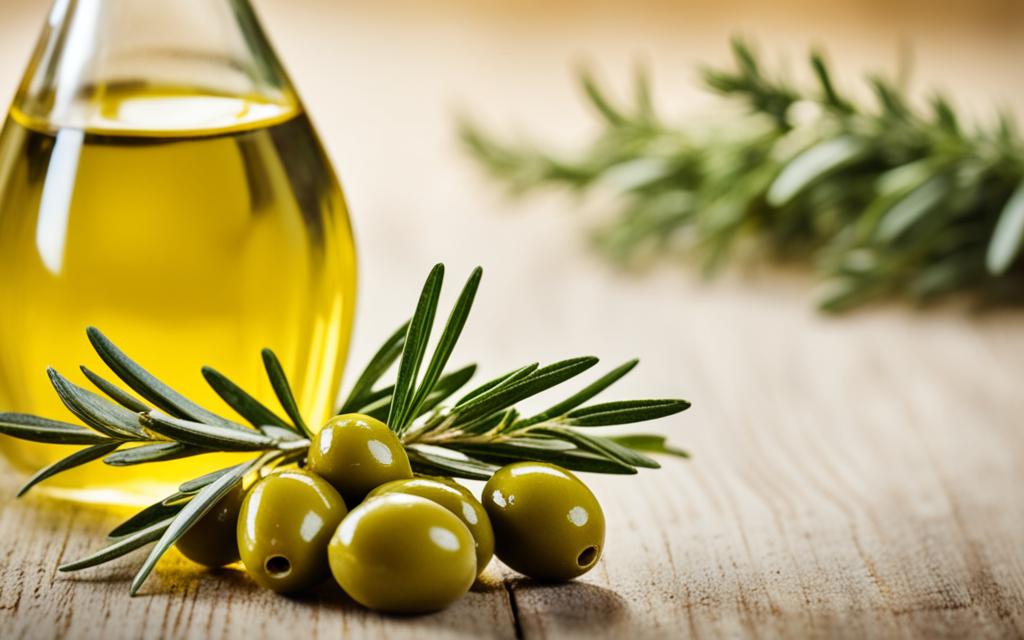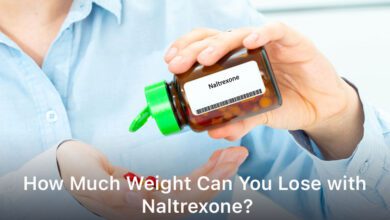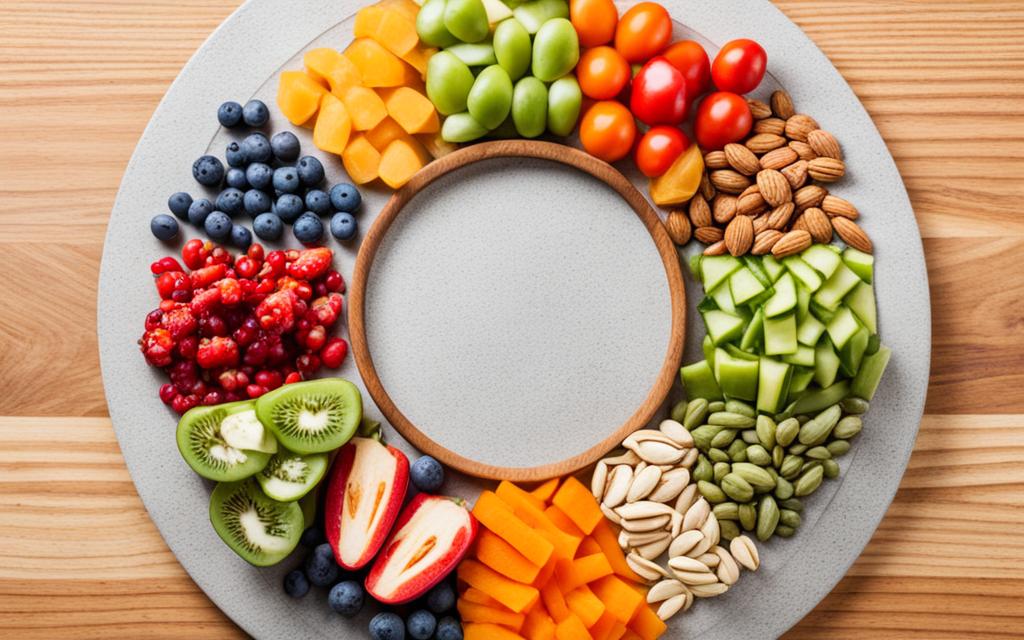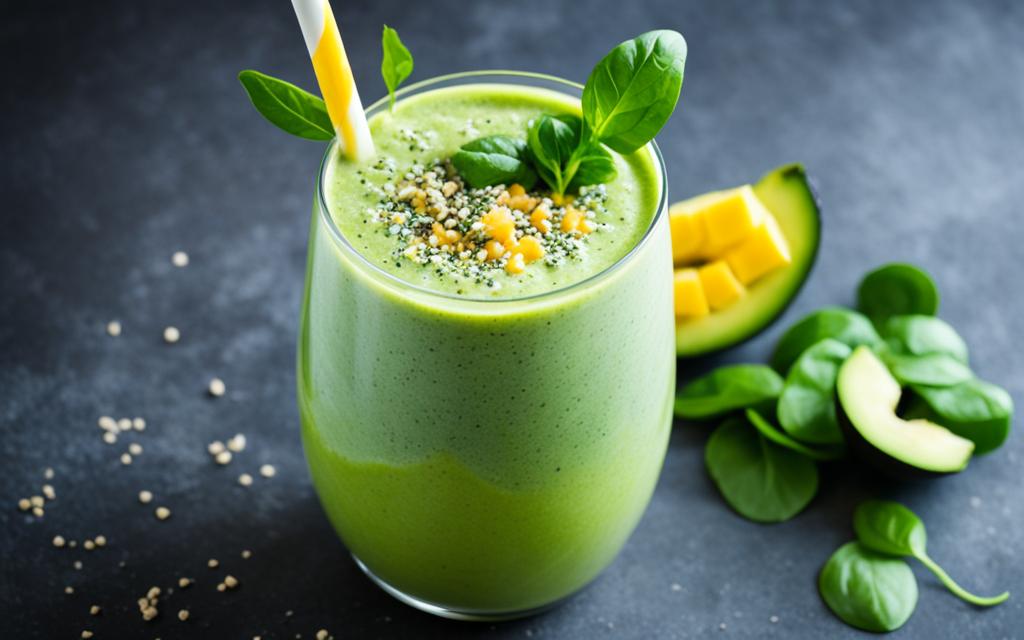Energy Drink Is Good for Health: Myth or Fact?

With the energy drink industry booming, it raises questions. Are these drinks truly good for us or just a marketing trick? We’ll look at the truth and myths about energy drink health benefits and risks.
Energy drink companies aim at people under 18, especially kids, teens, and college students. They often give out free samples and make drinks taste like candy to attract young buyers. This approach raises concerns about the health dangers these drinks pose to the young.
Compared to other drinks with caffeine, energy drinks have a lot more. For example, soft drinks have about 30 milligrams (mg) of caffeine. Coffee has 100 mg in each cup1. But energy drinks can have anywhere from 100 to 400 mg of caffeine1. This much caffeine, plus other stimulants, can cause several health issues1.
Introduction to Caffeine and Energy Drinks
Caffeine is found in nature, in things like coffee, tea, and cocoa beans. It’s a key player in how our body works, affecting the brain, muscles, heart, and blood pressure2. Most adults can safely enjoy up to 400 mg of caffeine a day. But, going overboard can cause problems like headaches, anxiety, and trouble sleeping.
What is Caffeine and its Effects on the Body
Caffeine wakes us up by blocking adenosine, a brain chemical that makes us tired. Without adenosine slowing us down, our brain releases other chemicals that keep us alert and happy2. Overdoing caffeine, however, can make us jittery, speed up our heart, and keep us up at night.
Caffeine in Popular Beverages: Coffee, Tea, and Energy Drinks
Caffeine is present in drinks we love like coffee, tea, and energy drinks. Energy drinks, known for their high caffeine, can sometimes be too much2. For instance, an 8-ounce Red Bull has 80 mg of caffeine. A 5-Hour Energy shot packs in up to 200 mg2. This much caffeine in energy drinks can be risky, especially if you have too many or mix them with alcohol.
| Beverage | Caffeine Content per Serving |
|---|---|
| Red Bull | 80 mg |
| AMP | 142 mg |
| Monster | 160 mg |
| Rockstar | 160 mg |
| NOS | 180 mg |
| Full Throttle | 160 mg |
| 5-Hour Energy | 200 mg |
Energy drinks with high caffeine levels can raise blood pressure, heart rate, and hurt our blood vessels2. They’re also sending many people to the ER in the U.S., more than 20,000 every year2.
Energy Drink Ingredients: Understanding the Stimulants
Energy drinks are now a big hit, especially for the younger crowd. They promise a quick pick-me-up. However, these drinks’ mix of stimulants can be risky if you have too much3.
Caffeine, Guarana, and Taurine: The Primary Boosters
Most energy drinks pack a caffeine punch. A 16-ounce can may hold 70 to 240 milligrams. That’s more than what’s in an 8-ounce coffee cup3. They might also throw in guarana, which has almost four times caffeine’s kick as a coffee bean’s3. Taurine, found in many, could boost how you do in workouts3.
Other Common Additives: Ginseng, B Vitamins, and More
Energy drinks don’t stop at caffeine. They add ginseng, B vitamins, and herbs. These are to help fight tiredness and perform better. But, using all these together can be tricky for your health, especially with too much3.
The original Green Monster Energy is a good example. It holds 160 milligrams of caffeine and 54 grams of sugar in 16 ounces. That’s more sugar than what most health experts suggest for daily use3. A 2022 BMJ release also tied the sweeteners in these drinks to heart problems. So, the World Health Organization is now saying to skip these sweeteners for your health3.
Energy drinks can give you a quick burst, but there are risks. This is especially true for kids and teens3. It’s wise to go easy and look for other ways to stay energized. Things like good sleep, exercise, and water are safer ways to keep going3.
The Potential Dangers of Excessive Energy Drink Consumption
Energy drinks offer a quick pick-me-up but drinking too many is risky. They pack a lot of sugar and caffeine, which can harm our health. So, it’s important to know the dangers for our well-being.
Excess Sugar and Calorie Intake
These drinks are full of sugar. A serving might have 62 grams of sugar4. This leads to weight gain, diabetes, and heart issues. They can also have up to 300 calories in just one drink.
Caffeine Overdose and Adverse Effects
Too much caffeine is harmful. A Red Bull has 80 mg, almost as much as a small coffee4. A few can be over 400 mg, which is too high. Overdoing it causes bad side effects like headaches and heart trouble.
Drinking energy drinks with alcohol is even worse. It makes people drink a lot more at once. This can lead to bad decisions, more injuries, and health problems in the long run.
Some people should never drink these, like kids, teens, pregnant women, and those with certain health issues. They’re more likely to get sick from energy drinks456.
Drinking too many energy drinks is dangerous. They might seem helpful, but the risks are real. We need to be careful how much we have to stay healthy. Knowing the dangers helps us make better choices for our health456.
energy drink is good for health: Separating Myth from Fact
Energy drinks claim to boost your energy and help you perform better. Yet, they often exaggerate the health benefits. The reality is, while they might give you a quick pick-me-up, they pose serious long-term health risks. These risks stem from high sugar and caffeine. This overshadows any possible advantages. So, it’s crucial to know what’s true and what’s not about these drinks.
One myth says energy drinks can up your game in sports and increase how long you can last. But, studies paint a different picture. For example, a 2019 report in the American Heart Association journal showed that drinking a lot of energy drinks can mess with your heart rate. This raises your blood pressure. Also, substances like guarana, taurine, and ginseng may not be good for your heart either, as per the American Heart Association7.
Some think energy drinks are a better choice than sugary sodas or coffee. However, a standard 16.9-ounce energy drink packs around 54 grams of sugar. That blows past the American Heart Association’s daily limit of 36 grams for men7. But wait, there’s more. A few of these drinks also squeeze in 207 milligrams of caffeine per 2 oz. This zips past the daily advised caffeine amount of up to 400mg for grown-ups. Too much caffeine can mess with your mood, leading to problems like anxiety and thoughts of harming yourself7.
Moreover, if you regularly knock back energy drinks while young, you might be more open to other risky stuff like booze and cigarettes7. The CDC noted that in 2011, almost 1,500 guys under 21 ended up in the ER from energy drinks. Plus, about a quarter of college students in the U.S. like mixing these drinks with alcohol. That just makes an already high-risk game even riskier8.
In the end, the quick energy fix from energy drinks doesn’t offset the health problems they can cause. It pays to get the facts right about these drinks. Then, it’s up to each of us to choose wisely for our health and happiness789.
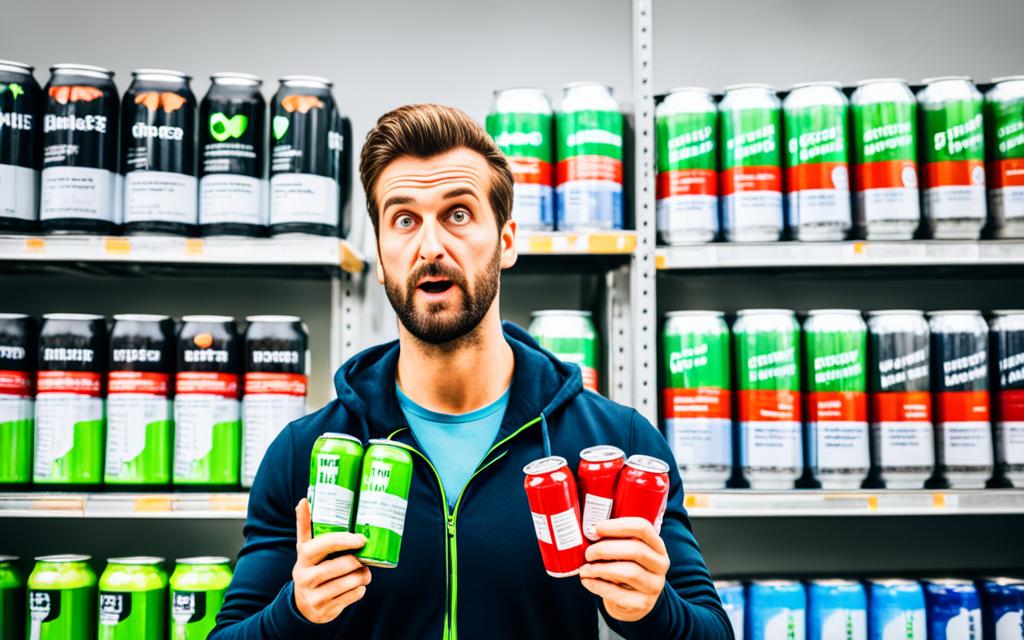
Energy Drinks and Their Impact on Specific Health Conditions
Energy drinks give us a quick energy boost, but they can harm our health over time. It’s vital to be aware of the dangers of drinking too many. This is especially true for people with certain health issues.
Cardiovascular Health and Energy Drinks
Energy drinks are packed with caffeine, which is bad for our heart. They might cause heartbeats to become irregular and harm our mental health10. These drinks also contain lots of sugar. This sugar surge can lead to serious problems like insulin resistance, diabetes, and tooth decay. Too much of it can also cause us to put on weight10. If you’re already dealing with heart problems, the caffeine can make things worse by spiking your blood pressure10.
Energy Drinks and Bone Health: The Osteoporosis Connection
Drinking energy drinks can weaken our bones, thanks to their caffeine. This happens because caffeine makes us lose important minerals for strong bones. Without these minerals, we are more at risk for osteoporosis, a disease that makes our bones weak10. This is a bigger worry for older adults who are already prone to osteoporosis.
| Health Concern | Impact of Energy Drinks |
|---|---|
| Cardiovascular Health | |
| Bone Health |
|
Knowing the risks of energy drinks is key. This is especially important if you already have heart or bone problems. By being informed, we can choose better ways to stay energized10.
Choosing water, getting enough sleep, being active, and eating well help our health a lot. They keep our energy up minus the bad effects of energy drinks10.
Energy Drinks and Athletic Performance
Athletes and fitness fans often look for ways to increase their energy and stamina. Energy drinks are a common choice because they claim to improve performance. They are packed with caffeine, sugar, and energy-boosting ingredients like taurine and B vitamins11. Some research shows that the caffeine in these drinks might help during exercise, but results are not clear12.
Overdoing energy drinks, particularly in young people new to caffeine, is risky11. Having too many in one go can stress the heart and raise blood pressure. This is even more dangerous for kids, teens, and those with health problems11.
Do Energy Drinks Improve Exercise Endurance?
Studies do point out that energy drinks with caffeine can boost sports performance in some cases. This includes games like soccer or actions like sprinting12. But, not everyone reacts the same to caffeine’s benefits. Our genes might play a role in how we process caffeine’s effects12.
For active people, using energy drinks can be a bit risky. The dangers, like becoming dehydrated or stressing the heart, might not be worth the energy boost for most. Instead, choose water, sports drinks, or get energy from good food and sleep. These are healthier and keep working for you over time13.
To sum up, the link between energy drinks and better sport performance is not simple. Even though some benefits are seen, the risks from too many drinks and how we each react to caffeine are important. Athletes should think carefully about using energy drinks. They should also look into safer ways to get an energy lift and help their stamina during exercise111213.
The Controversy Around Marketing Energy Drinks to Minors
The energy drink business is under fire for how it markets to young people. This includes kids and teens. They use cool designs, tempting tastes, and promises of better performance14. But, young people who drink these can face health issues because of too much caffeine and other energy boosters15.
In the past few years, energy drinks got really popular, growing by 60% from 2008 to 201214. This quick growth has worried parents, doctors, and lawmakers. They fear these drinks are not good for the health of youngsters14. In the U.S., over 40% of teens drank an energy drink in the last three months15. In the European Union, almost 28% of teens have had one in the last three days15.
- The energy drink companies aim their products at teenagers and kids, which makes their marketing worrisome14.
- Legal cases have been brought against these companies, claiming their drinks can harm health and that they’re not true to their ads14.
- There is a divide among companies. Some say they won’t market to kids under 18, but others haven’t agreed to this yet14.
- Some countries have taken action by setting laws to stop certain marketing moves aimed at kids and teens, like in Saudi Arabia and Lithuania14.
The discussion continues about whether it’s okay to advertise energy drinks to those under 18. People from the industry and those worried about their impact both have strong voices. As more youth drink these, stricter laws and careful advertising are seen as more needed1516.
Safer Alternatives for Boosting Energy Levels
Forget about energy drinks that might harm you. There are safer ways to get more energy that are just as good. Sleep well, exercise, and drink enough water. These are key to feeling more alert without the problems that come with some drinks. Also, think about what you drink. There are better choices than drinks with too much caffeine and sugar.
Natural Energy Boosters: Sleep, Exercise, and Hydration
Good sleep is crucial for staying energized17. So is being active, which boosts feel-good chemicals in your brain. And, drinking lots of water fights off tiredness.
Healthier Beverage Options: Green Tea, Kombucha, and More
Energy drinks aren’t your only option. Look at teas and drinks like kombucha. Green tea helps keep your energy up at an affordable price18. Kombucha, on the other hand, is rich in good bacteria and not too much caffeine18. Fresh juice, coffee, and matcha are also good choices. They give you a lift without the downsides of energy drinks.
| Beverage | Caffeine Content | Other Key Nutrients |
|---|---|---|
| Green Tea | 28-30 mg per 8 oz | Antioxidants, L-theanine |
| Kombucha | 10-15 mg per 8 oz | Probiotics, Antioxidants |
| Coffee | 95-200 mg per 8 oz | Antioxidants |
| Matcha | 70-80 mg per 8 oz | Polyphenols, L-theanine |
| Dark Chocolate | 12 mg per 1 oz | Theobromine, Antioxidants |
| Coconut Water | 0 mg | Electrolytes, Potassium, Magnesium |
Choosing these drinks over energy drinks is smart171918. You’ll get more energy without the bad stuff.
Conclusion
Energy drinks offer a quick pick-me-up, but the dangers from their caffeine20 and sugar levels are serious. They’re very popular with young people in the US, Europe, and Asia21. Teenagers often drink them for more energy, to focus better on studies, to do well in sports, or to lose weight21.
The risks of too many energy drinks are many, including dehydration, feeling anxious, and having trouble sleeping20. They can also harm the heart. For students, those who consume these drinks tend to have lower grades21. They may do poorly in math and English too21. More problems from these drinks are less sleep and messing up your natural body clock. This can lead to doing more dangerous things and using drugs21.
We should find better ways to get energized than using energy drinks. Good options include getting enough sleep, regular exercise, and choosing drinks with less sugar and caffeine. It’s all about being informed and making healthy choices to feel our best22.
Source Links
- https://familydoctor.org/truth-energy-drinks/
- https://www.healthline.com/nutrition/energy-drinks
- https://www.everydayhealth.com/diet-nutrition/how-bad-are-energy-drinks-for-you-really/
- https://health.clevelandclinic.org/are-energy-drinks-bad-for-you
- https://www.sutterhealth.org/health/nutrition/risks-of-energy-drinks
- https://health.ucdavis.edu/blog/good-food/how-do-energy-drinks-affect-your-heart-and-overall-health/2024/05
- https://www.menshealth.com/health/a19542947/energy-drink-health-effects/
- https://fherehab.com/learning/addicted-to-energy-drinks
- https://www.ncbi.nlm.nih.gov/pmc/articles/PMC10535526/
- https://intermountainhealthcare.org/blogs/how-will-energy-drinks-impact-my-health
- https://www.acsm.org/blog-detail/acsm-certified-blog/2022/03/14/exercise-and-energy-drinks-what-does-the-research-say
- https://www.ncbi.nlm.nih.gov/pmc/articles/PMC7995988/
- https://www.nationwidechildrens.org/specialties/sports-medicine/sports-medicine-articles/new-guidelines-sports-and-energy-drinks
- https://www.fooddive.com/news/energy-drink-company-marketing-spilling-controversy/353068/
- https://undark.org/2019/06/26/kids-energy-drinks/
- https://www.denverpost.com/2013/08/05/sales-of-energy-drinks-surge-along-with-controversy-over-health-effects/
- https://www.healthline.com/health/energy-drinks-healthy-alternatives
- https://letsliveitup.com/blogs/supergreens/healthy-alternatives-for-energy-drinks
- https://health.fmolhs.org/body/eating-well/rethink-the-energy-drinks-with-healthier-alternatives/
- https://recsports.ufl.edu/energy-drinks-sip-it-or-skip-it/
- https://medcraveonline.com/MOJAP/energy-drinks-pros-and-cons.html
- https://www.ncbi.nlm.nih.gov/pmc/articles/PMC3280075/


